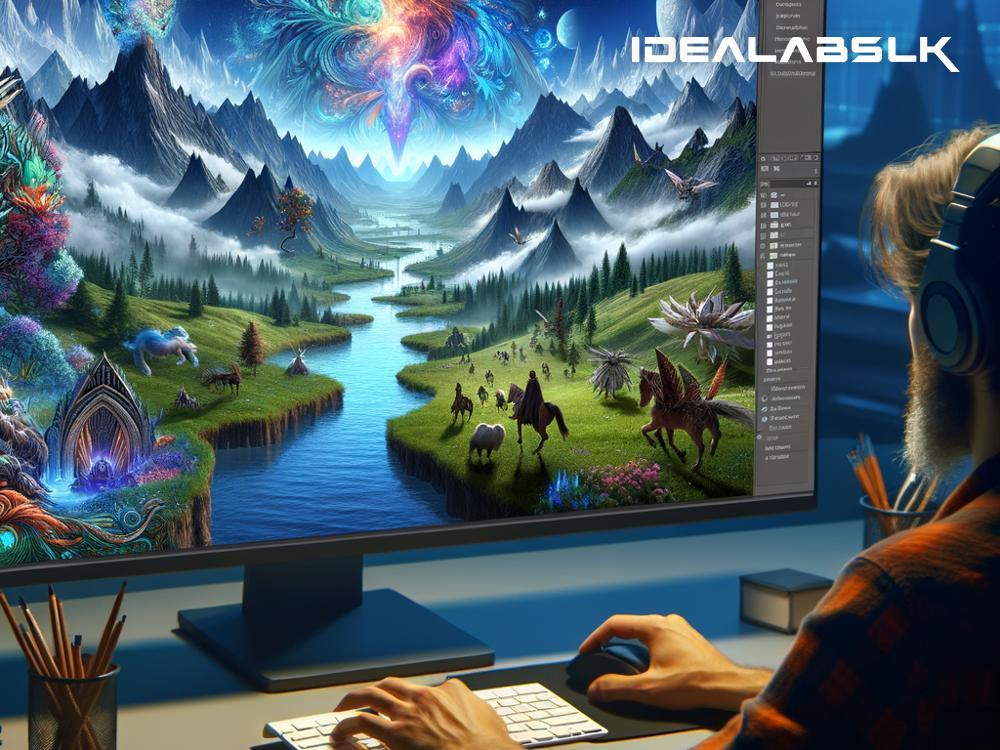AI and Player-Driven Worlds: How AI Will Enhance Player-Created Content in 2025
In the digital age, video games and virtual worlds are no longer just about following a pre-written storyline penned by the game developers. With advancements in technology, particularly in Artificial Intelligence (AI), the horizon of what's possible in gaming has expanded. By 2025, we're looking at a future where AI will significantly enhance player-created content, empowering gamers to personalize their adventures like never before.
Breaking Down the Barrier Between Developers and Gamers
Traditionally, creating expansive worlds, intricate storylines, or engaging characters in games has been the realm of professional game developers and writers. However, as AI technology becomes more sophisticated, this is rapidly changing. AI tools are beginning to democratize game creation, making it possible for players themselves to design complex elements of their gaming experiences without needing advanced coding skills or a team of artists.
The Power of AI in Enhancing Creativity
Imagine logging into a game and being greeted by a world that evolves based on your actions, preferences, and creativity. This isn't as far-fetched as it sounds. AI can generate dynamic content, including landscapes, quests, and non-player characters (NPCs), that respond to and evolve with the player's unique input. For instance, if a player enjoys puzzle-solving, AI can create new, unique puzzles tailored to their skill level and preferences. The possibilities for personalization are virtually unlimited, giving each player a bespoke experience.
Collaboration Between AI and Players
One of the most exciting prospects is the collaboration between AI and players in world-building within games. Players can outline their visions, and AI can instantly bring those ideas to life, whether it's designing a castle, crafting an ecosystem, or generating a storyline. This participatory approach to game development could lead to games that are perpetually fresh and engaging, with content that morphs and grows in response to community input.
Overcoming Challenges with AI
Of course, integrating AI into player-driven content creation poses its challenges. Ensuring that AI-generated content aligns with game lore, maintaining balance, and preventing the creation of inappropriate content are some hurdles. However, with the development of smarter, more context-aware AI algorithms, these challenges are becoming increasingly manageable. By 2025, these systems will likely be sophisticated enough to understand and adapt to the nuanced demands of different gaming worlds and their communities.
The Future Role of Game Developers
With players gaining more control over content creation, one might wonder about the role of traditional game developers in this new landscape. Far from becoming obsolete, developers' roles will shift towards creating versatile AI systems and tools that empower players. They'll act more as curators and facilitators, setting the stage for players to unleash their creativity, rather than dictating the direction and flow of game content.
The Ethical Implications
The empowerment of players to create content raises important ethical considerations. Issues around intellectual property, content moderation, and ensuring a safe, inclusive environment for all players are paramount. It will be essential for developers to implement robust AI moderation tools and clear guidelines to address these concerns adequately.
Conclusion
As we look towards 2025, the fusion of AI and player-driven worlds promises to revolutionize the gaming industry. By empowering players to be co-creators, games will become more diverse, dynamic, and deeply engaging. This shift doesn't just herald a new era of gaming; it represents a bold reimagining of the creative process, where the barriers between creator and consumer blur in exciting new ways.
However, as we embrace this future, it's crucial that we navigate the potential pitfalls thoughtfully. Balancing creativity with responsibility, and innovation with ethical considerations, will ensure that the evolution of gaming is beneficial and enjoyable for everyone involved.
In sum, the future of gaming is not just playing in worlds created by others but playing a pivotal role in creating those worlds ourselves. AI is the key to unlocking this potential, transforming gaming from a passive entertainment form into an active, limitless space for imagination and creation. Welcome to the future of gaming, where your creativity knows no bounds.

